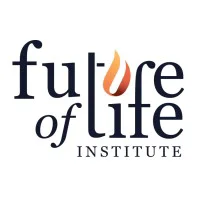AI Offense-Defense Dynamics Lead Researcher

Future of Life Institute
Summary
Join the Center for AI Risk Management & Alignment (CARMA) as a Lead Researcher to conduct cutting-edge research on offense-defense dynamics of advanced AI systems. Apply interdisciplinary methods to develop quantitative and qualitative frameworks for analyzing how AI capabilities proliferate through society. Produce actionable insights for AI developers, evaluators, standards bodies, and policymakers to mitigate risks. This role offers a unique opportunity to shape how society evaluates and governs increasingly powerful AI systems, directly impacting global efforts to maximize AI's benefits while minimizing its risks. The position is 100% remote with occasional travel required. CARMA is a fiscally-sponsored project of Social & Environmental Entrepreneurs, Inc., a 501(c)(3) nonprofit.
Requirements
- A M.Sc. or higher in either Computer Science, Cybersecurity, Criminology, Security Studies, AI Policy, Risk Management, or a related field
- Demonstrated experience with complex systems modeling, risk assessment methodologies, or security analysis
- Strong understanding of dual-use technologies and the factors that influence whether capabilities favor offensive or defensive applications
- Experience in any of the following: Security mindset, Security studies research, Cybersecurity, Safety engineering, AI governance, Operational risk management, Systems dynamics modeling, Network theory, Complexity science, Adversarial analysis, or Technical standards development
- Ability to develop both qualitative frameworks and quantitative models that capture sociotechnical interactions, and comfort creating semi-quantitative semi-empirical models also grounded in logic
- Record of relevant publications or research contributions related to technology risk, governance, or security
- Exceptional analytical thinking with ability to identify non-obvious path dependencies and feedback loops in complex systems
Responsibilities
- Develop quantitative system dynamics models capturing the interrelationships between technological, social, and institutional factors that influence AI risk landscapes
- Expand and operationalize our current offense/defense dynamics taxonomy and nascent framework, developing metrics and models to predict whether specific AI system features favor offensive or defensive applications
- Design detailed analytical models and simulations to identify critical leverage points where policy interventions could shift offense-defense balances toward safer outcomes
- Build empirically-informed analytical frameworks based on real-world AI incidents and use cases to validate theoretical models
- Research how specific technical characteristics (capabilities breadth/depth, accessibility, adaptability, etc.) interact with sociotechnical contexts to determine offense-defense balances
- Effectively communicate through public speaking, blog posts, articles, and other media to build fields' understanding and traction regarding the societal framing of offense-defense dynamics
- Create tools and methodologies to assess new AI models upon release for their likely offense-defense implications
- Draft evidence-based guidance for AI governance that accounts for complex interdependencies between technological capabilities and deployment contexts
- Communicate findings effectively to diverse stakeholders, including policymakers, AI developers, security professionals, and standards organizations
Preferred Qualifications
- PhD in a relevant field
- Experience with system dynamics modeling, hypergraph techniques, or other complex network analysis methods
- Skills in developing interactive tools or dashboards for risk visualization and communication
- Background in interdisciplinary research bridging technical and social science domains
- Demonstrated aptitude in top-down techniques and first-principles thinking
- Experience with the quantification of qualitative risk factors or developing proxy metrics for complex phenomena
- Background in compiling and analyzing incident databases or case studies for pattern recognition
- Familiarity with empirical approaches to technology assessment and impact prediction
- Knowledge of international relations theory as it applies to technology proliferation dynamics
Benefits
Good benefits if U.S. employee